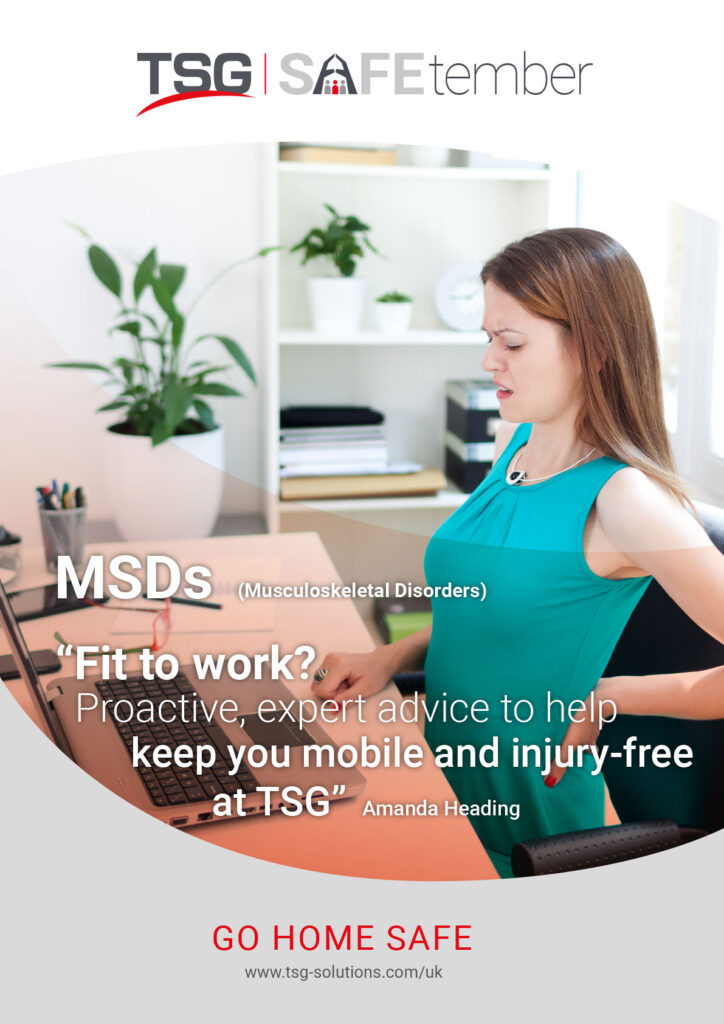Our final presentation of SAFEtember 2020 comes from physio Amanda Heading, as she talks through Musculoskeletal Disorders (MSDs) and measures you can take to help prevent them and keep yourself pain-free both at home and at work.

Posture Matters
In a nutshell, bad posture causes pain, impacting your ability to move around, your level of concentration as well as having a negative effect on your mood and causing you to fatigue more quickly.
It’s not just those who sit at a desk at work who should consider this. We easily fall into the habit of slouching when standing and walking, as well as driving. This all contributes to increased compressive force on our lower spine, therefore increasing the chance of injury and, in the longer term, musculoskeletal disorders.
Safe Lifting
Something many of us are guilty of, but perhaps don’t realise is a problem, is bending down using our backs to lift things up. The muscles in our lower back we use when doing this are postural muscles which are not designed for dynamic movement. The muscles in our legs, which are the biggest in the body, and in our backsides are more powerful, meaning these are what we should use when bending over, even for something as little as picking up a pen. This vastly reduces the compressive force on your lower back and therefore reduces the chance of injury and long-term issues like musculoskeletal disorders.
The way you twist can also lead to a back injury. Your upper back is made for twisting, but not at the same time as bending over. As such, you should turn using your feet instead of your back.
Repetitive Movement
If you’re doing repetitive tasks at work, this can lead to an overload of muscular tension which can cause inflammation and pain. To counter this, it is important to consider how you could break this cycle of repetition to ease the stress on your muscles and joints. The best way to do this is to take regular breaks where you can move around, ideally using the opposite movement to that which you are repeating throughout the day.
Awkward Spaces
Sometimes our job can mean we find ourselves working in awkward spaces, such as accessing hard-to-reach electrical sockets or lifting things onto shelves. This means that we have to compromise on our posture, but we need to keep our physical wellbeing in mind when doing this.
Manual work burns a lot of energy, but we should not rely on this to keep ourselves fit. Persistent manual work will eventually wear our bodies out and potentially lead to musculoskeletal disorders, so it is important to maintain your fitness outside of work. Think of it like an athlete – playing football is great exercise, but players don’t rely on just playing the game to keep themselves fit. There is an awful lot of conditioning work that they have to do on top of this in order to maximise their playing ability and reduce the risk of injury. As well as the physical benefits, exercise is proven to also raise your mood.



